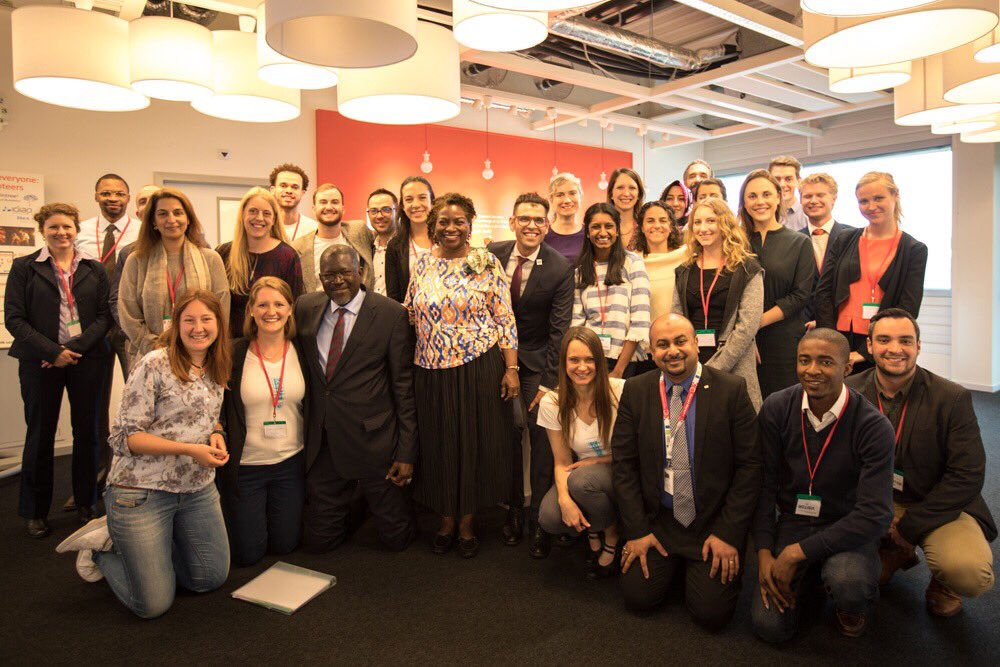Almost forty representatives from humanitarian partners, including Governments, NGOs, youth organizations, private sector and UN agencies, met last week in Geneva, Switzerland to discuss and work towards advancing the implementation of the Compact for Young People in Humanitarian Action, which was launched last year during the World Humanitarian Summit.
During this second annual meeting, members reviewed progress since the launch of the Compact, defined key priorities for 2017-2018, and worked towards the development of a global work plan. Hence, the meeting was another milestone in advancing the delivery of the Compact’s five core commitments – service delivery, participation, capacity building, resources, and data – at the global level.
Since the first annual meeting of July 2016, a secretariat for the Compact was established, led by UNFPA and IFRC, and five task forces for each of the Compact’s core commitments have been preparing their workplans on how the Compact members best individually as well as collectively take their efforts forward in each. Building on recent achievements, members of the Compact during this second annual meeting banked on the opportunity to galvanize implementation of the Compact at the member organisation level while enabling meaningful engagement of young people in all Compact-related work.
.@Federation & @UNFPA leadership addressed closing session of 2nd meeting of Compact for Young People in Humanitarian Action | #YouthCompact pic.twitter.com/S8evEJztvd
— UN Youth Envoy (@UNYouthEnvoy) April 27, 2017
Emphasizing the importance of transforming humanitarian action not only for, but also with young people, Deputy Executive Director of UNFPA, Ms. Natalia Kanem told those gathered in Geneva “it is important to make sure there is space for young people to interact and share their experiences”. Ms. Kanem also emphasized that, “The Compact provides a blueprint for how we can work together to move & transform the youth agenda in humanitarian situations.”
In closing the two-day meeting, the Secretary-General of the International of Red Cross and Red Crescent Societies, Elhadj As Sey, further reinforced the importance of the need for engaging affected youth and committed that, “We must look at current challenges through the prism of youth and young people on the ground.”
2nd Annual Meeting w/ partners in Compact for Youth working to transform humanitarian action for & with young people! Follow #YouthCompact pic.twitter.com/PMagW5aB8n
— UN Youth Envoy (@UNYouthEnvoy) April 26, 2017


